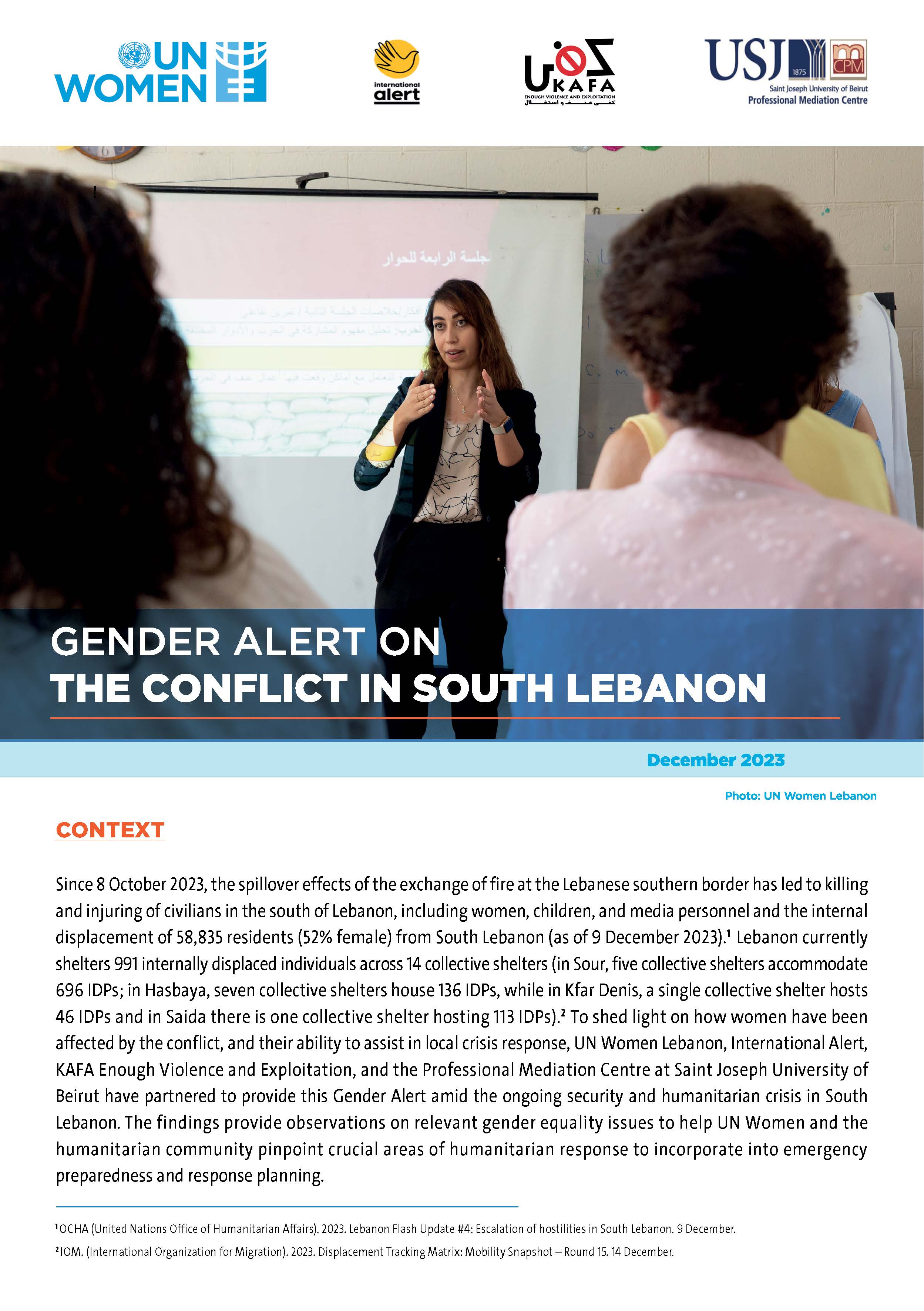
Gender Alert on the Conflict in South Lebanon

Since 8 October 2023, the spillover effects of the exchange of fire at the Lebanese southern border has led to killing and injuring of civilians in the south of Lebanon, including women, children, and media personnel and the internal displacement of 58,835 residents (52% female) from South Lebanon (as of 9 December 2023). Lebanon currently shelters 991 internally displaced individuals across 14 collective shelters (in Sour, five collective shelters accommodate 696 IDPs; in Hasbaya, seven collective shelters house 136 IDPs, while in Kfar Denis, a single collective shelter hosts 46 IDPs and in Saida there is one collective shelter hosting 113 IDPs). To shed light on how women have been affected by the conflict, and their ability to assist in local crisis response, UN Women Lebanon, International Alert, KAFA Enough Violence and Exploitation, and the Professional Mediation Centre at Saint Joseph University of Beirut have partnered to provide this Gender Alert amid the ongoing security and humanitarian crisis in south Lebanon. The findings provide observations on relevant gender equality issues to help UN Women and the humanitarian community pinpoint crucial areas of humanitarian response to incorporate into emergency preparedness and response planning.
According to consultations organized by UN Women and partners from 30 October to 10 November with 68 local women in South Lebanon engaged in local peacebuilding initiatives in six different locations (Marjayoun, Khayzaran, Ain el Helwe refugee camp, Hasbaya, Tyre (Sour) and Abbassiyeh), the conflict is having a variety of effects on the lives of women and girls. These include socioeconomic hardship, immense emotional distress, safety concerns and frustrations with inadequate support systems. Moreover, analysis of data from other UN humanitarian organizations point to additional gender-specific concerns. Women’s rights organizations are getting involved, despite many challenges, and the consultations revealed the myriad ways in which local women are contributing by providing essential assistance and participating in local emergency coordination and planning. Notably, women are engaged in crisis management, registering with relief organizations, and addressing the specific needs of the displaced, while working with the municipalities to find available shelter.